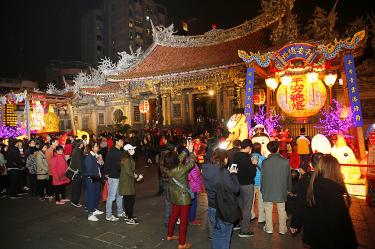Beijing yesterday announced that starting today it is suspending a program that allowed individual tourists from 47 Chinese cities to travel to Taiwan, citing the current state of relations between the two sides.
Chinese nationals may only travel to Taiwan as tourists if they are part of tour groups, the Chinese Ministry of Culture and Tourism said in a statement.
The ministry’s statement did not provide any further details as to the reason for the ban.
The unexpected move comes as China attempts to isolate Taiwan and President Tsai Ing-wen’s (蔡英文) administration.
Travel to Taiwan was opened to Chinese nationals in 2011, during former president Ma Ying-jeou’s (馬英九) administration.
The move might also be aimed at hurting Tsai’s re-election chances in the presidential election on Jan. 11 next year.
Chinese Ministry of Foreign Affairs spokeswoman Hua Chunying (華春瑩) declined to answer a question about the decision, asking reporters at a briefing in Beijing yesterday afternoon to talk to the relevant department for Taiwan affairs.
The Mainland Affairs Council issued a statement condemning the move, saying that cross-strait tourism is an important way of promoting better understanding.
It called on Beijing to discuss the issue with Taipei.
The Tourism Bureau said it regretted Beijing’s decision and hoped for a return to positive interaction with China.
“This is a shock to all of us. We are all very worried about it,” Taipei Association of Travel Agents chairman Benny Wu (吳志健) said by telephone. “This will have a huge impact on Taiwan’s tourism [industry] and economy.”
Spending by foreign tourists accounted for about 2.2 percent of GDP in 2017, the last year for which data is available, according to the bureau.
China was the largest single source of people visiting Taiwan and accounted for almost one-third of total visitors to the nation in May, according to a Bloomberg calculation based on data published by the bureau.
“As Taiwan is holding a presidential election soon, it’s not surprising that China is banning its citizens from visiting Taiwan,” KGI Securities Investment Advisory Co (凱基投顧) chairman Chu Yen-min (朱晏民) said.
“It seems to be a routine practice ahead of elections, as China doesn’t want its citizens to witness democracy,” Chu added. “The ban is expected to have a limited impact on Taiwan’s economy and stock market, as those hit are mostly not listed companies.”
Source: Taipei Times - 2019/08/01





















